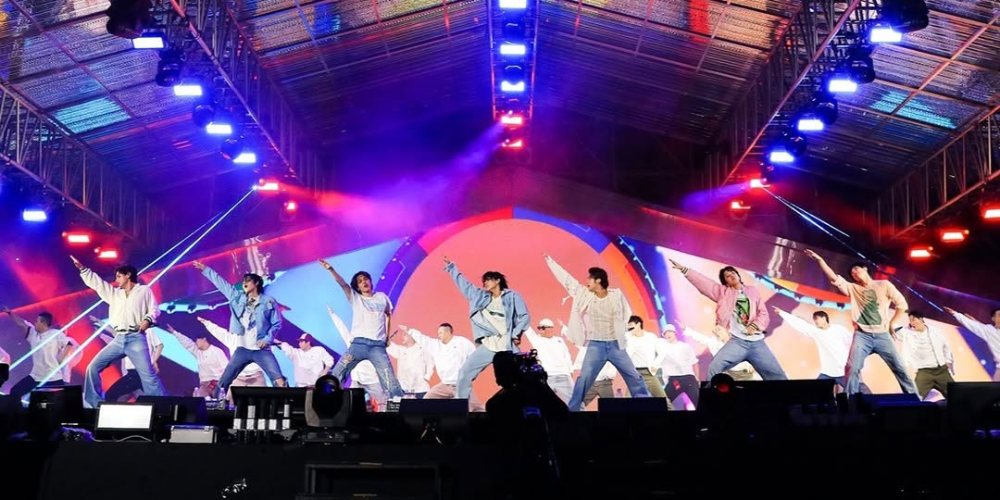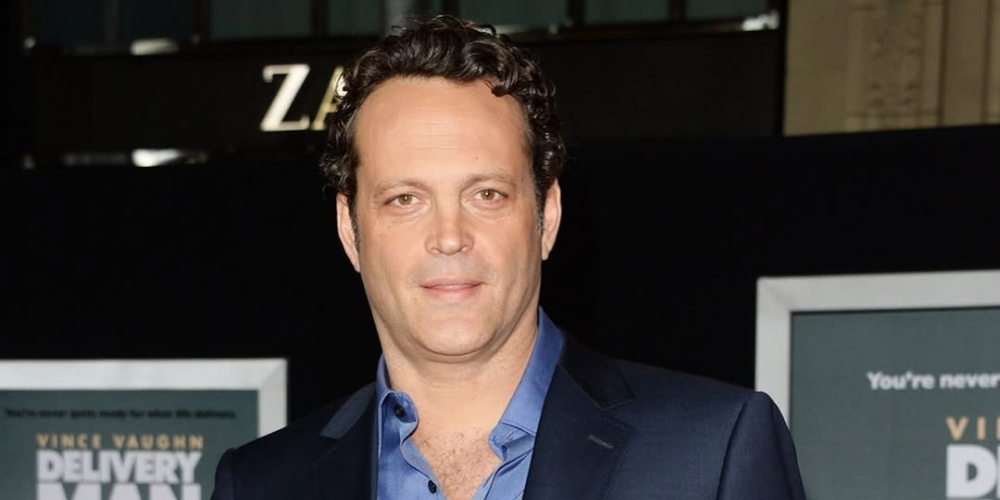The past fifteen years have rewritten the story of global pop music. No modern music conversation feels complete without mentioning the unstoppable wave of Korean pop. What once thrived as a regional industry now shapes the worldwide soundscape.
From PSY’s viral sensation “Gangnam Style” to the stadium-filling power of BTS and Blackpink, K-pop has transformed from a niche fandom into a global cultural movement. It dominates charts, fills arenas, and inspires millions, yet one thing remains missing—Grammy recognition.
K-Pop’s Impact Grows Louder Every Year
The world fell in love with Korean pop through unforgettable moments. In 2012 release of PSY's "Gangnam Style" on the internet turned the song into a worldwide sensation. That moment sparked an international fascination that would soon evolve into a lasting pop revolution.
Groups like BTS, Blackpink, and EXO carried that momentum, turning Korean pop into a household name. Their songs blend addictive beats, sharp choreography, and cinematic storytelling that captivate fans from Los Angeles to London. Concerts sell out within minutes, albums debut at number one on the Billboard 200, and K-pop stars headline major festivals once reserved for Western icons.
Despite all this dominance, Grammy gold still seems out of reach. While K-pop owns the world stage, it continues to wait for its defining moment at Music’s Biggest Night.
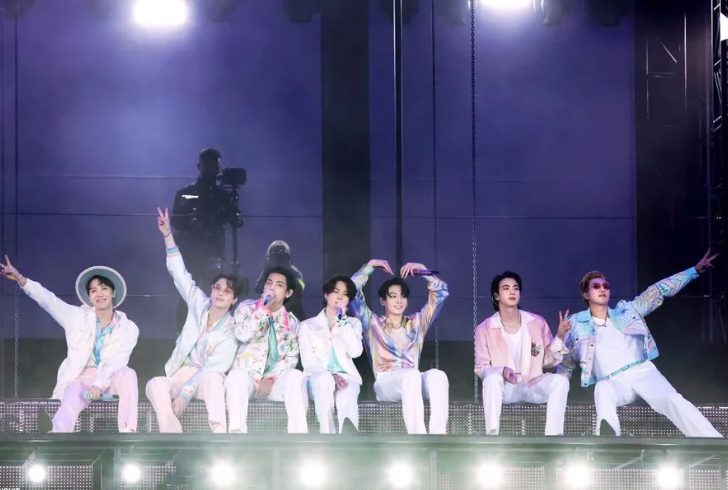
Instagram | @bts_tamil_official_ | K-Pop artists continue to break records and captivate fans worldwide.
Why K-Pop Still Lacks a Grammy Category
In recent years, the Recording Academy has made efforts to reflect the world’s diverse soundscape. New Grammy categories like Best African Music Performance and Música Mexicana show that global inclusion is finally taking shape. Yet, K-pop—one of the most influential global forces—remains without its own category.
Recording Academy CEO Harvey Mason Jr. has spoken openly about this challenge. He explained that while conversations about a K-pop category have taken place, the biggest obstacle lies in representation. Creating a new category requires enough qualified Academy members who understand the genre. Without that expertise, nominations could misrepresent the artistry and diversity of Korean pop.
He emphasized that the Academy is working to strengthen ties with the Korean music community. “The people writing, producing, and singing these songs need to be part of the process,” Mason shared. Only then can the Academy ensure that K-pop receives the fair recognition it deserves.
Defining K-Pop
Another complication lies in defining what “K-pop” really means. The genre constantly evolves, blending pop, hip-hop, R&B, and electronic influences from around the world. Some argue it shouldn’t be separated from mainstream pop categories.
A few years ago, Grammy officials noted that many Korean artists consider their work simply “pop music.” At that time, K-pop submissions made up less than 2% of the pop category, far too small to justify a separate field. But things have changed dramatically since then.
With the genre’s explosive global reach, submission numbers are likely far higher now. Music executives like Jeremy Erlich believe that creating a K-pop-only category could unintentionally isolate the genre. He compared the situation to Latin superstar Bad Bunny, who aims to be recognized as a global artist, not just within Latin music. K-pop artists deserve that same opportunity—to compete on equal footing with the world’s biggest stars.
BTS and the Breaking of Barriers
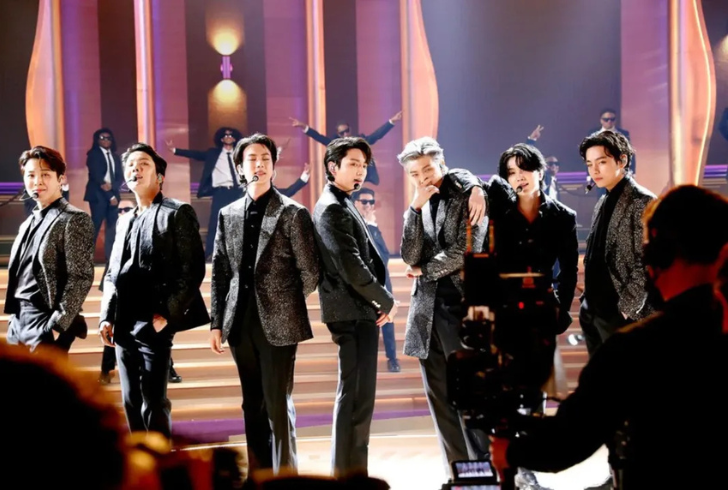
Instagram | @bangtan_hyderabad7 | BTS made history with their Grammy nominations and inspired K-Pop recognition.
Few acts have done more to push K-pop into Grammy consideration than BTS. Their run of nominations made history. Tracks like “Dynamite,” “Butter,” and “My Universe” (with Coldplay) earned nods in major pop categories and even an Album of the Year nomination as part of Music of the Spheres.
Although the group didn’t win, their recognition broke significant ground. It proved that Korean acts could stand shoulder-to-shoulder with Western pop heavyweights. However, since BTS’s nominations, no other K-pop group has followed in their footsteps—at least not yet.
K-Pop’s Influence Inside the U.S. Music Industry
Over the past five years, K-pop’s presence in the American music business has multiplied. Major labels now sign Korean acts at a pace once unthinkable. Cross-cultural collaborations have become the norm, linking artists and producers across continents.
Recent hits showcase this blend. Jung Kook’s collaboration with Latto, Lisa’s partnerships with RAYE and Doja Cat, and Jennie’s work with Western producers all highlight a growing creative exchange. Songwriters like Ryan Tedder have even partnered with Korean entertainment giants such as HYBE to develop new global groups.
Amanda Hill of Runner Music noted that the Korean industry is more involved in U.S. creative hubs than ever before. “It’s not just about sending tracks through email anymore,” she said. “They’re in Los Angeles, meeting writers, building sessions, and connecting cultures.”
Pop Culture Crossovers Take Center Stage
K-pop’s visibility soared to new heights thanks to powerful cultural moments. The Netflix animated hit “KPop Demon Hunters” introduced a fictional K-pop universe to global audiences, and its soundtrack became a chart-topping success. Songs like “Golden” by HUNTR/X ruled the Billboard Hot 100 for weeks, while real-life stars like TWICE and Rosé continued dominating the Billboard 200.
The worldwide success of “APT.”—a collaboration between Rosé and Bruno Mars—proved that K-pop’s global influence extends beyond borders. Each milestone strengthens the case for Grammy recognition. If such major releases continue to go unacknowledged, the Academy will face growing pressure to act.
Calls for Change Grow Stronger
Music executives believe progress depends on leadership within the Recording Academy. Amanda Hill mentioned that meaningful changes require passionate advocates inside the organization. She compared the process to the introduction of the Songwriter of the Year category, which took years of persistence.
If K-pop is to secure its own Grammy field, it will take committed individuals championing its inclusion. Some industry leaders even suggest expanding the idea further to include all Asian pop genres. A more inclusive “Asian Pop” category could reflect the diverse creativity emerging from Japan, China, and Southeast Asia as well.
The Heart Behind the Movement
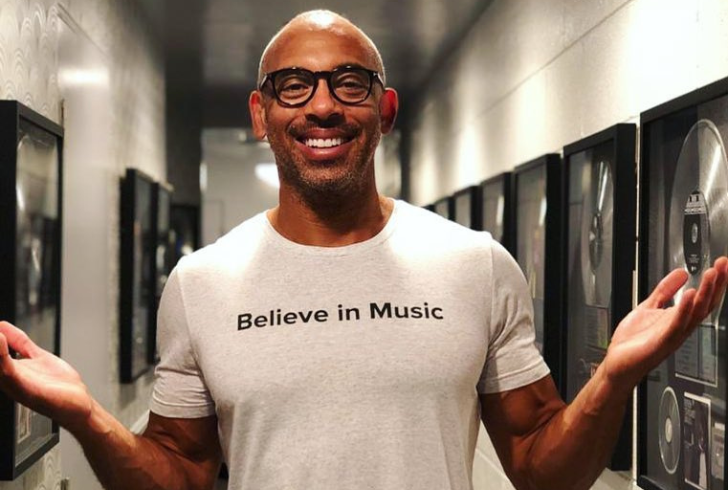
Instagram | @harveymasonjr | Harvey Mason Jr shares his deep connection with K-Pop and its global rise.
Harvey Mason Jr. brings a personal connection to this mission. Years before becoming Recording Academy CEO, he worked as a producer in Korea, collaborating with local artists and labels. That experience shaped his appreciation for the country’s innovation and artistry.
He recalls being among the first American producers to work directly in Seoul’s studios, helping bridge cultures long before K-pop conquered the globe. His passion for the music remains evident. “I’ve been part of that journey,” he explained. “And I want to see it celebrated on the biggest stage possible.”
Korean pop music has earned that moment. Its creativity, discipline, and global reach have redefined what pop music means in the 21st century.
The World Is Listening — The Grammys Should Too
The global stage already recognizes K-pop’s artistry, passion, and influence. Fans from every continent fill arenas, stream albums, and create online communities that celebrate unity through rhythm and culture. The Grammys now have the chance to honor that impact officially.
As K-pop keeps evolving, its stars continue to blur boundaries and rewrite what it means to be global artists. The world listens, dances, and celebrates every beat. The Grammys just need to take the next step—because recognition isn’t a favor; it’s long overdue.
K-pop’s journey proves that music knows no borders. Its rise has changed global pop forever, and its Grammy moment will mark a new era—one where music from anywhere can win everywhere.

